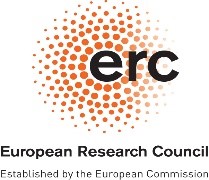References
Abdolvand, M., Hozouri, S., & Karimzadeh, M. (2017). Identifying factors affecting banks' competitiveness in banking system with an emphasis on performance of international division (case study: Iranian private banks). Revista QUID (Special Issue), 2857-2861.
Search via ReFindit
Abrham, J., Strielkowski, W., Vošta, M., & Šlajs, J. (2015). Factors that influence the competitiveness of Czech rural SMEs. Agricultural Economics, 61(10), 450-460. https://doi.org/10.17221/63/2015-AGRICECON
Search via ReFindit
Asongu, S. A., Anyanwu, J. C., & Tchamyou, V. S. (2019). Technology-driven information sharing and conditional financial development in Africa. Information Technology for Development, 25(4), 630–659. https://doi.org/10.1080/02681102.2017.1311833
Search via ReFindit
Barysienė, J., Batarlienė, N., Bazaras, D., Čižiūnienė, K., Griškevičienė, D., Griškevičius, A. J., Lazauskas, J., Mačiulis, A., Palšaitis, R., Vasiliauskas, A. V., & Vasilienė-Vasiliauskienė, V. (2015). Analysis of the current logistics and transport challenges in the context of the changing environment. Transport, 30(2), 233–241. https://doi.org/10.3846/16484142.2015.1046403
Search via ReFindit
Belen, L., & Nuria, V. (2017). Corporate Competitiveness Based on Sustainability and CSR Values: Case Studies of Spanish MNCs (pp. 309–314). Springer, Cham. https://doi.org/10.1007/978-3-319-33865-1_39
Search via ReFindit
Bezerra, P., Arruda, A., Laila, T., & Moroni, I. (2018). Strategic design: Enhancing experiences and developing local products. Advances in Intelligent Systems and Computing, 588, 453–461. https://doi.org/10.1007/978-3-319-60582-1_45
Search via ReFindit
Bleady, A., Ali, A.H. & Ibrahim, S.B. (2018). Dynamic Capabilities Theory: Pinning Down a Shifting Concept. Academy of Accounting and Financial Studies Journal, 22(2) https://www.abacademies.org/articles/dynamic-capabilities-theory-pinning-down-a-shifting-concept-7230.html
Search via ReFindit
Cheng, X., Long, R., & Chen, H. (2018). Obstacle diagnosis of green competition promotion: a case study of provinces in China based on catastrophe progression and fuzzy rough set methods. Environmental Science and Pollution Research, 25(5), 4344–4360. https://doi.org/10.1007/s11356-017-0762-z
Search via ReFindit
Cheng, X., Long, R., Chen, H., & Li, Q. (2019). Coupling coordination degree and spatial dynamic evolution of a regional green competitiveness system – A case study from China. Ecological Indicators, 104, 489–500. https://doi.org/10.1016/j.ecolind.2019.04.003
Search via ReFindit
Dess, G.G. & Davis, P.S. (1984). Porter's (1980) Generic strategies as determinants of strategic group membership and organizational performance. The Academy of Management Journal, 27(3), 467-488. https://doi.org/10.2307/256040
Search via ReFindit
Dubey, R., Gunasekaran, A., Childe, S. J., Papadopoulos, T., Hazen, B. T., & Roubaud, D. (2017). Examining top management commitment to TQM diffusion using institutional and upper echelon theories Examining top management commitment to TQM diffusion using institutional and upper echelon theories. International Journal of Production Research. https://doi.org/10.1080/00207543.2017.1394590
Search via ReFindit
Fu, X., Guo, M., & Zhanwen, N. (2017a). Applying the green Embedded lean production model in developing countries: A case study of china. Environmental Development. https://doi.org/10.1016/j.envdev.2017.02.004
Search via ReFindit
Fu, X., Guo, M., & Zhanwen, N. (2017b). Applying the green Embedded lean production model in developing countries: A case study of china. Environmental Development, 24, 22–35. https://doi.org/10.1016/j.envdev.2017.02.004
Search via ReFindit
Fursov, V., Krivokora, E., & Strielkowski, W. (2018). Regional aspects of labor potential assessment in modern Russia. Terra Economicus, 16(4), 95-115. https://doi.org/10.23683/2073-6606-2018-16-4-95-115
Search via ReFindit
Hermans, F. (1861). The potential contribution of transition theory to the analysis of bioclusters and their role in the transition to a bioeconomy. Biofuels, Bioprod. Bioref, 12, 265–276. https://doi.org/10.1002/bbb.1861
Search via ReFindit
Huguenin, A., & Jeannerat, H. (2017). Creating change through pilot and demonstration projects: Towards a valuation policy approach. Research Policy, 46(3), 624–635. https://doi.org/10.1016/j.respol.2017.01.008
Search via ReFindit
Katta, A. K., Subbarao, P., & Ramana, S. V. (2019). HRD - Banks in the ICT Era a Focus on Private sector Banks. 5, 943–957.
Search via ReFindit
Khoshnava, S. M., Rostami, R., Zin, R. M., Štreimikienė, D., Yousefpour, A., Strielkowski, W., & Mardani, A. (2019). Aligning the criteria of green economy (GE) and sustainable development goals (SDGs) to implement sustainable development. Sustainability, 11(17), 4615 https://doi.org/10.3390/su11174615
Search via ReFindit
Khvesyk, M., Obykhod, H., Bystryakov, I., & Khvesyk, Y. (2018). Assessment of the safety of environment in terms of sustainable development. Economic Annals-XXI, 170(3–4), 22–26. https://doi.org/10.21003/ea.V170-04
Search via ReFindit
Kodama, M. (2017). Developing strategic innovation in large corporations-The dynamic capability view of the firm. Knowledge and Process Management, 24(4), 221–246. https://doi.org/10.1002/kpm.1554
Search via ReFindit
Konuk, F. A., Rahman, S. U., & Salo, J. (2015). Antecedents of green behavioral intentions: a cross-country study of Turkey, Finland and Pakistan. International Journal of Consumer Studies, 39(6), 586–596. https://doi.org/10.1111/ijcs.12209
Search via ReFindit
Lin, Y.-H., & Chen, Y.-S. (2017). Determinants of green competitive advantage: the roles of green knowledge sharing, green dynamic capabilities, and green service innovation. Quality & Quantity, 51(4), 1663–1685. https://doi.org/10.1007/s11135-016-0358-6
Search via ReFindit
Ling, G. M., Fern, Y. S., Boon, L. K., & Huat, T. S. (2016). Understanding Customer Satisfaction of Internet Banking: A Case Study in Malacca. Procedia Economics and Finance, 37, 80–85. 30096-x https://doi.org/10.1016/s2212-5671(16)
Search via ReFindit
Lu, J., Ren, L., Qiao, J., Yao, S., Strielkowski, W., & Streimikis, J. (2019). Corporate social responsibility and corruption: Implications for the sustainable energy sector. Sustainability, 11(15), 4128. https://doi.org/10.3390/su11154128
Search via ReFindit
Maitre, N., Behrendt, C., Canonge, J., Cotinguiba, L., Duran, F., Schmitt, V., Urban, S., Capaldo, J., & Montt, G. (2018). Protecting workers and the environment. World Employment and Social Outlook, 2018(2), 103–126. https://doi.org/10.1002/wow3.141
Search via ReFindit
Maixé-Altés, J. C. (2015). ICT the Nordic way and European retail banking. IFIP Advances in Information and Communication Technology, 447, 249–262. https://doi.org/10.1007/978-3-319-17145-6_27
Search via ReFindit
Mishra, P. (n.d.). Green human resource management a framework for sustainable organizational development in an emerging economy. https://doi.org/10.1108/IJOA-11-2016-1079
Search via ReFindit
Moskalenko, V., & Yevsieieva, I. (2015). Effective leadership conflict management in food technology enterprises. International Economics Letters, 4(2), 91-102. https://doi.org/10.24984/iel.2015.4.2.4
Search via ReFindit
Mwesigwa Banya, R., & Biekpe, N. (n.d.). Bank competition and economic growth Empirical evidence from selected frontier African countries. 2 August 2016. https://doi.org/10.1108/JES-09-2015-0169
Search via ReFindit
Nasr, A. K., Kashan, M. K., Maleki, A., Jafari, N., & Hashemi, H. (2020). Assessment of Barriers to Renewable Energy Development Using Stakeholders Approach. Entrepreneurship and Sustainability Issues, 7(3), 2526-2541. https://doi.org/10.9770/jesi.2020.7.3(71)
Search via ReFindit
Nevárez, V. L., & Féliz, B. D. Z. (2019). Social responsibility in the dimensions of corporate citizenship. A case study in agricultural manufacturing. CIRIEC-Espana Revista de Economia Publica, Social y Cooperativa, 97, 179–211. https://doi.org/10.7203/CIRIEC-E.97.12566
Search via ReFindit
Niño-Amézquita, J., Dubrovsky, V,, & Jankurová, A. (2017) Innovations and competitiveness in regional development: a comparison of Latin America, Europe, and China. Czech Journal of Social Sciences, Business and Economics, 6(1), 28-36. https://doi.org/10.24984/cjssbe.2017.6.1.4
Search via ReFindit
Porter, M.E. (1991). Towards a dynamic theory of strategy. Strategic Management Journal, 12(52), 95-117. https://doi.org/10.1002/smj.4250121008
Search via ReFindit
Shkodina, I., Derid, I., & Zelenko, O. (2019). Digital transformation of global banking: challenges and prospects. Financial and Credit Activity: Problems of Theory and Practice, 3(30), 45–51. https://doi.org/10.18371/fcaptp.v3i30.179680
Search via ReFindit
Stock, T., Obenaus, M., Kunz, S., & Kohl, H. (2018). Industry 4.0 as enabler for a sustainable development: A qualitative assessment of its ecological and social potential. Process Safety and Environmental Protection, 118, 254–267. https://doi.org/10.1016/j.psep.2018.06.026
Search via ReFindit
Štreimikienė, D., Aksamitauskaitė R., & Sutkutė, N. (2014). The impact of sustainable development knowledge on competitiveness of organizations, Czech Journal of Social Sciences, Business and Economics, 3(4), 6-17.
Search via ReFindit
Strielkowski, W., & Höschle, F. (2016). Evidence for economic convergence in the EU: The analysis of past EU enlargements. Technological and Economic Development of Economy, 22(4), 617-630. https://doi.org/10.3846/20294913.2014.890138
Search via ReFindit
Strielkowski, W., Dvořák, M., Rovný, P., Tarkhanova, E., & Baburina, N. (2021a). 5G wireless networks in the future renewable energy systems. Frontiers in Energy Research, 9, 714803. https://doi.org/10.3389/fenrg.2021.714803
Search via ReFindit
Strielkowski, W., Tarkhanova, E., Baburina, N., & Streimikis, J. (2021b). Corporate Social Responsibility and the Renewable Energy Development in the Baltic States. Sustainability, 13(17), 9860. https://doi.org/10.3390/su13179860
Search via ReFindit
Themistocleous, M., Basias, N., & Morabito, V. (2015). A Framework for Service-oriented Architecture Adoption in e-Banking: the Case of Banks from a Transition and a Developed Economy. Information Technology for Development, 21(3), 460–479. https://doi.org/10.1080/02681102.2014.939605
Search via ReFindit
Tsai, S.-B., Saito, R., Lin, Y.-C., Chen, Q., & Zhou, J. (2015). Discussing measurement criteria and competitive strategies of green suppliers from a green law perspective. J Engineering Manufacture, 229(S1), 135–145. https://doi.org/10.1177/0954405414558740
Search via ReFindit
Vasylchak, S., & Halachenko, A. (2016). Theoretical basis for the development of resort services: regional aspect. International Economics Letters, 5(2), 54-62. https://doi.org/10.24984/iel.2017.5.2.3
Search via ReFindit
Vinícius, R., Jordão, D., Novas, J., & Gupta, V. (2020). The role of knowledge-based networks in the intellectual capital and organizational performance of small and medium-sized enterprises. Kybernetes, 49(1), 116–140. https://doi.org/10.1108/K-04-2019-0301
Search via ReFindit
Wang, T., Zhang, H., Tian, L., & Xiao, N. (2016). Research on the Ecological Evaluation of the Competitiveness of Based on Set Pair Analysis-A Case Study. Chemical Engineering Transactions, 51. https://doi.org/10.3303/CET1651136
Search via ReFindit
WESO Greening with Jobs. (n.d.) Retrieved June 20, 2019 from https://www.ilo.org/weso-greening/#Chapter-2/1
Search via ReFindit












 RSS 1.0
RSS 1.0